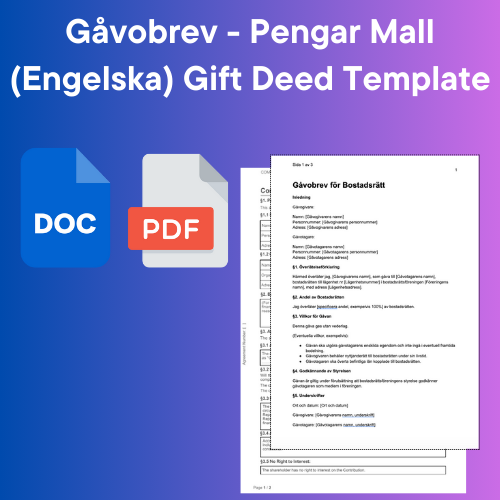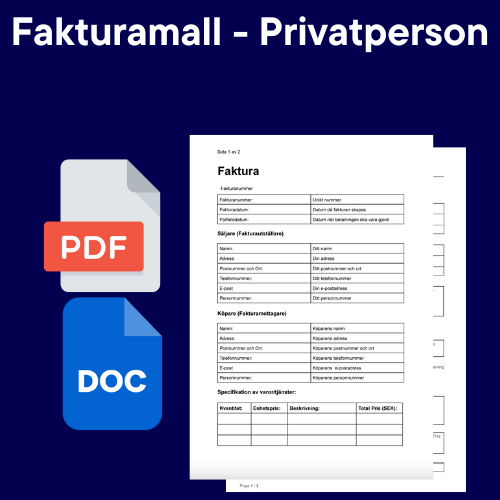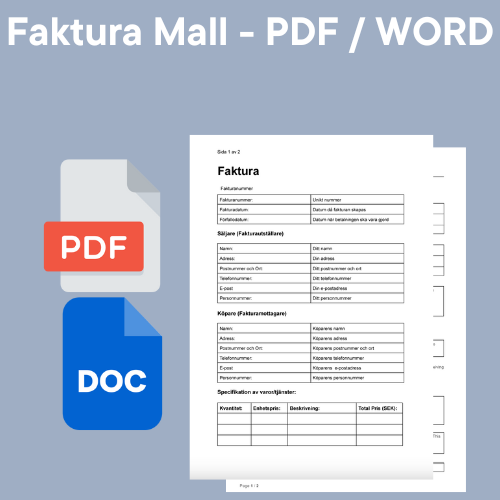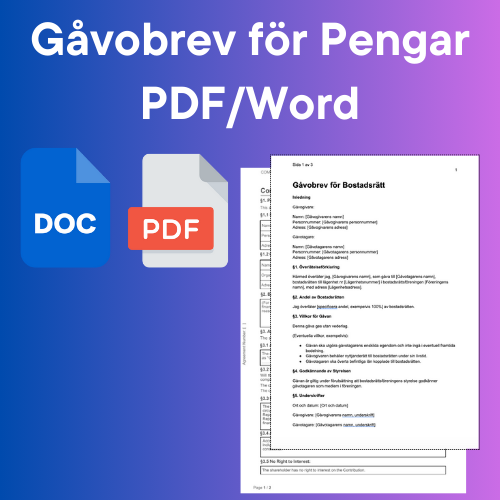Short-term rental Agreement FAQ (Frequently Asked Questions)
Share
Short-term rental Agreement FAQ
Table of Contents
- What is short term rental?
- Legal requirements and agreements
- Deposit and down payment
- Advantages of short-term rentals
- Disadvantages of short-term rentals
- Tax rules
- Legislation and tenant's rights
- Digital contracts and security
- Extension of lease
- Practical example
- Tips for successful short-term rentals
What is short term rental?
Short-term rental refers to the rental of housing for a period of up to three months. This could be for holiday accommodation or other temporary needs. Short-term rentals are popular in attractive tourist areas and can provide higher income compared to long-term rentals.
Legal requirements and agreements
A short-term rental agreement should be in writing to avoid misunderstandings and future disputes. The agreement must specify the rental period, the rental amount, what is included in the rent, and conditions for the deposit and down payment.
Deposit and down payment
The landlord may require a security deposit which is usually refunded at the end of the tenancy, provided the property is returned in good condition. The deposit is part of the rent that is paid in advance and ensures that the tenant actually completes the rental period.
Advantages of short-term rentals
- Higher income: Short-term rentals can provide higher rental income per day compared to long-term rentals, especially in tourist-dense areas.
- Flexibility: The landlord can adapt the rental periods to their own needs and market demand.
- Less risk of long-term conflicts: Short rental periods reduce the risk of getting stuck with problematic tenants.
Disadvantages of short-term rentals
- More maintenance: The home often needs to be cleaned and prepared between each tenant, which can be time-consuming.
- Uncertain income: There may be periods without tenants, which negatively affects income.
Tax rules
Income from short-term rentals is taxable. Landlords should declare this income as capital income. However, it is possible to make deductions for certain costs such as maintenance and operating costs. The Swedish Tax Agency has specific guidelines for how this should be reported.
Legislation and tenant's rights
According to Swedish law, tenants must be treated fairly and the housing must maintain an acceptable standard. The landlord must follow the rules for letting, including requirements that the home is safe and habitable. If the tenant does not pay rent or mismanages the home, the landlord can terminate the agreement early.
Digital contracts and security
There are digital services where landlords can create, edit and sign leases electronically. These contracts are legally binding and are signed securely with Mobile BankID, giving both landlord and tenant security and convenience.
Extension of lease
For rental agreements that extend beyond nine months, the agreement is automatically extended unless terminated. For shorter rental periods, the agreement is automatically terminated at the end of the rental period. It is important to clearly define these terms in the lease to avoid disputes.
Practical example
For example, a landlord who rents out a residence in a tourist area during the summer may charge higher rents and require deposits to protect against possible damage. Should the tenant cancel at the last minute, the agreement may include clauses that make the deposit non-refundable, protecting the landlord from financial loss.
Tips for successful short-term rentals
- Advertise effectively: Use platforms like Airbnb or similar to reach out to potential tenants.
- Write detailed agreements: Specify all terms clearly in the agreement to avoid misunderstandings.
- Maintain the home: Keep the home in good condition to attract tenants and minimize maintenance costs.
Renting out your home for a short period of time can be a rewarding experience both financially and personally if done right. Gene by complying with laws, drafting clear contracts and being aware of tax rules, landlords can maximize their income and reduce the risk of problems.




